Breaking
- MENU
.jpg)
The geopolitical developments in the Middle East over the past fifteen years have created new political and security dynamics engendered by the violent turmoil and profound concerns over the Iranian threat, shared by Israel and the Arab states. Israel is now facing a new critical juncture: continue with its oppressive occupation and creeping annexation of Palestinian land, which stands in total contrast to its moral responsibility and Jewish values; or seek a peace agreement with the Palestinians in the context of an Arab-Israeli comprehensive peace, which the Arab states seek now more than any time before because of their domestic and foreign security concerns.
The current government, led by Netanyahu with the support of three radical ministers, Lieberman, Bennett, and Shaked—who hold the key ministries of Defense, Education, and Justice respectively—relishes the new geopolitical environment. They complement each other by developing a defines posture, biased educational curriculum, and skewed public narrative while weakening the judiciary, with Netanyahu orchestrating the long-term strategy that denies the Palestinians a state of their own.
Blinded by the euphoria created by Trump’s recognition of Jerusalem as Israel’s capital, and the near-unimpeded expansion of settlements and annexation of Palestinian land, the ministers feel confident that the occupation is no longer a major concern to the Arab states. And with the unwavering backing of Trump, they are assuming a free hand to do what they choose with impunity. They are tragically wrong.
Israel must now seize the momentous, time-sensitive opportunity provided by the changing geopolitical regional dynamic precipitated by the common Iranian threat against Israel and the Arab states. The leading Arab states, especially Saudi Arabia, Egypt, Jordan, and the Gulf States, view Israel today as a strategic ally rather than an enemy, which presents Israel with two options:
The first is to make further territorial gains by building new, expanding existing, and legalizing illegal settlements, which will basically foreclose any prospect of reaching an Israeli-Palestinian peace agreement based on two states. This will not stop the Arab states from cooperating with Israel because of their preoccupation with domestic and foreign threats, which assumes priority over the Palestinians’ aspiration for statehood.
The relatively mute reaction to Trump’s recognition of Jerusalem as Israel’s capital only reinforces the view that the Arab states’ anxieties about the Iranian threat takes precedence, even over such a sensitive issue as the future status of Jerusalem.
That said, although the Arab states want to normalize relations with Israel, they will not do so because that would be seen as a blatant betrayal of the Palestinian cause which they have championed for decades. Instead, they would (continue to) maintain tacit strategic cooperation with Israel against Iran, which they need, but deprive Israel of a comprehensive peace which the Israelis greatly seek.
The second option for Israel is to capitalize on its current state of relations with the Arab countries by reaching out to the Palestinians to resume serious peace talks. This may well be a historic opportunity because the Arab states, who want to maintain their strategic cooperation with Israel, are now predisposed to pressure the Palestinians to make important concessions to Israel, especially on national security, refugees, and land swaps.
The current conditions provide a rare opportunity to reach a peace agreement that can be implemented over a long period of time (ten years or more), during which both sides can develop trust (which is sorely lacking) through joint socio-economic projects while cementing security arrangements and cooperation.
By establishing a Palestinian state, Israel will end its human rights violations and stop the continuing moral erosion precipitated by the occupation, which has infected the country for five decades and severely undermined Jewish values and humanitarianism. These values were the very secret behind Jewish survival throughout the millennia, even though they were subjected to discrimination, persecution, expulsion, and death.
As Rabbi Daniel Polish eloquently stated in his writing “Judaism and Human Rights”, “The system of values and ideas [on which human rights are based] are among the beliefs which constitute the very core of Jewish sacred scripture and the tradition of ideas and practices which flows from it…”
At their core, Netanyahu and his company are dedicated to the idea that God bequeathed the “Land of Israel” exclusively to the Jews, which justifies taking any measure, however wrong and humanly abusive, to secure the land in perpetuity in the name of God. They have become oblivious to the fact that “Human rights are an integral part of the faith and tradition of Judaism.”
The right-wing segment of the Israeli population views the development of events between Israel and its Arab neighbours, and the US’ recognition of Jerusalem as Israel’s capital, as proof of the unassailability of the Netanyahu government’s judgment and policies. But there is nothing further from the truth.
If these policies could, in fact, lead to a comprehensive peace, I’d say, stay the course. But given the volatility of the Middle East, today’s friends may well become the foes of tomorrow. This is a prospect that the Netanyahu government cannot ignore.
At the present, the Saudis and other Gulf states need strategic cooperation with Israel, as it serves their interests as long as Iran is seen as a threat to their national security. This could change in many ways, including the mitigation of the Saudi-Iranian conflict, once Syria and Iraq stabilize, in which case strategic cooperation with Israel becomes irrelevant.
Without striking a peace agreement with the Palestinians and the rest of the Arab states, Israel will leave itself vulnerable to the changing geopolitical environment. Can Netanyahu, Lieberman, Bennett, and Shaked guarantee they can indefinitely frame the development of events in the region to Israel’s advantage?
There is no real adversary today that can potentially destroy Israel. Israel’s greatest enemy comes from within—its misguided leaders, whose blind messianic mission will be behind the destruction of Israel as a Jewish and democratic state.
Note: This article was originally published in the web portal of Prof. Ben-Meir and has been reproduced under arrangement. http://alonben-meir.com/writing/geopolitical-conditions-moral-values-converge/
As part of its editorial policy, the MEI@ND standardizes spelling and date formats to make the text uniformly accessible and stylistically consistent. The views expressed here are those of the author and do not necessarily reflect the views/positions of the MEI@ND. Editor, MEI@ND: P R Kumaraswamy

Dr. Alon Ben-Meir is a professor of international relations and Middle Eastern Studies at New York University. He is also a journalist/author and writes a weekly syndicated column for United Press International, which appears regularly in US and international newspapers. Email: alon@alonben-meir.com

Regardless of the intensity of the current conflict between the Biden administration and Saudi Arabi.....

Given that Israel and Hamas collaborate both publicly and tacitly on multiple fronts, one would thin.....

No people have ever risen from the ashes of near-extinction to form a country and achieve the height.....

Righting the Wrong Israel’s repeated threats to attack Iran’s nuclear facilities irre.....

Dear President Erdogan, I send this open letter to you because it pains me to see a country like .....

The Israeli argument against the establishment of a Palestinian state on the grounds of national sec.....

It takes bold US leadership to effect a change in the Israeli-Palestinian discourse, and Biden may w.....

Although the Palestinians have every right to establish an independent state of their own, nothing h.....

This is a summary of a major proposal that documents the need to establish an Israeli-Palestinian co.....

Every Israeli will sooner than later realize that the creation of a Palestinian state is the only wa.....

There has never been an Israeli government representing the entire political spectrum from the extre.....

No one should have the illusion that once a ceasefire is established, Israel and the Palestinians sh.....

The Israeli-Palestinian conflict will never be settled through violence. Both sides must wake up and.....

Regardless of how the current and future violent conflicts between Israel and the Palestinians in Je.....

The Biden administration’s new Middle East strategy is forcing regional powers to reassess the.....

It is hard to fathom how in a country that boasts about its technological advancements, scientific b.....

The result of the fourth election in two years clearly points to the dysfunction of Israel’s p.....

Erdogan’s decision to withdraw Turkey from the 2011 Council of Europe Convention on Preventing.....

Tragically, the entire international community has failed miserably to muster the moral courage to e.....

The US and the EU will make a mockery out of the virtues of morality and human rights they preach un.....

The Palestinian conflict is dangerously eroding Israel’s moral standing as the public’s .....

While tens of thousands of Yemeni men, women and children are dying from starvation and disease, the.....

The peace agreement between Israel and the UAE lays the foundation for a future Israeli-Arab allianc.....

It is said where are two Jews, there are three opinions. And in the state of Israel, there is yet an.....

Four ethical theories—Kantian, utilitarian, virtue-based, and religious—demonstrate the .....

I have long maintained that Israel’s occupation of the West Bank defies the moral principle be.....

Since the Second Intifada in 2000, the Israelis have been steadily moving to the right-of-centre. Su.....

Those who applaud the assassination of General Soleimani seem to simply equate him to a terrorist wh.....

The long-anticipated indictment of Prime Minister Netanyahu has finally come to pass. For three year.....

Trump’s decision to withdraw from the Joint Comprehensive Plan of Action (JCPOA, or Iran deal).....

Much has been said and written about Trump’s disgraceful pointed “advice” to Prime.....

Israeli Prime Minister Netanyahu’s decision to call for an early election, scheduled to take p.....

Over the past three decades I wrote more than two hundred articles about Israel, envisioning it to b.....

Trump’s decision to withdraw US forces from Syria is extremely reckless and is bound to backfi.....

The cold-blooded killing of the journalist Khashoggi, however gruesome, pales compared to the brutal.....

With Syria’s civil war nearing an end with the takeover of the city of Idlib by Assad’s .....

I maintain that regardless of the political, strategic, demographic, and regional vicissitudes, the .....

Last week I conducted a panel discussion about Turkey under the leadership of Erdogan. The day befor.....

Much of what Israel and the Palestinians are experiencing today has befallen them under Netanyahu&rs.....

The nearly three months of demonstrations by Palestinians along the Is.....

The reelection of Turkey’s President Erdogan, falsely considered to be free, fair and represen.....

Any protracted conflict can come to an end under certain circumstances that either evolve over a per.....

Dear M. Haniyeh and Sinwar; I am writing this letter to you in the wake of the latest confrontati.....

The re-election of Egypt’s President Sisi came as no surprise. Despite irregularities at some .....

President Trump’s characterization of the US attack on specific Syrian chemical storage and re.....

The recent violation of Israel’s air space by an Iranian drone and Israel’s retaliation .....

The United States has been and remains the staunchest supporter of Israel, and its unqualified suppo.....

It is hard to fathom why Turkey’s President Erdogan, who embarked on the most impressive socia.....

I was in Israel when Trump made his announcement recognizing Jerusalem as Israel’s c.....
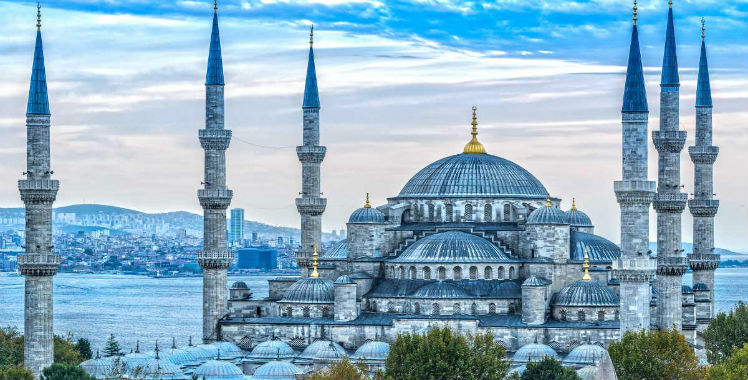
The egregious violation of freedom of the press in Turkey has reached a mammoth proportion that plac.....

The Iraqi Kurds’ referendum that was conducted several weeks ago won an overwhelming majority .....

Much of what Israel and the Palestinians are experiencing today has befallen them under Netanyahu’s lead.....

Lurking in the background of a Saudi-Moroccan spat over World Cup hosting rights and the Gulf crisis is a more.....

Any protracted conflict can come to an end under certain circumstances that either evolve over a period of tim.....

Amid ever closer cooperation with Saudi Arabia, Israel’s military appears to be adopting the kind of sec.....

Mounting anger and discontent is simmering across the Arab world much like it did in the walk-up to .....

Argentina’s cancellation of a friendly against Israel because of Israeli attempts to exploit the match p.....

Dear M. Haniyeh and Sinwar; I am writing this letter to you in the wake of the latest confrontation between.....

The Civil War in Syria has ravaged the country, took the life of nearly 500,000 people and has forced more tha.....

India’s prospective engagement with the Arab world, especially the six-member Gulf Cooperation Council (.....

President Trump’s characterization of the US attack on specific Syrian chemical storage and research fac.....
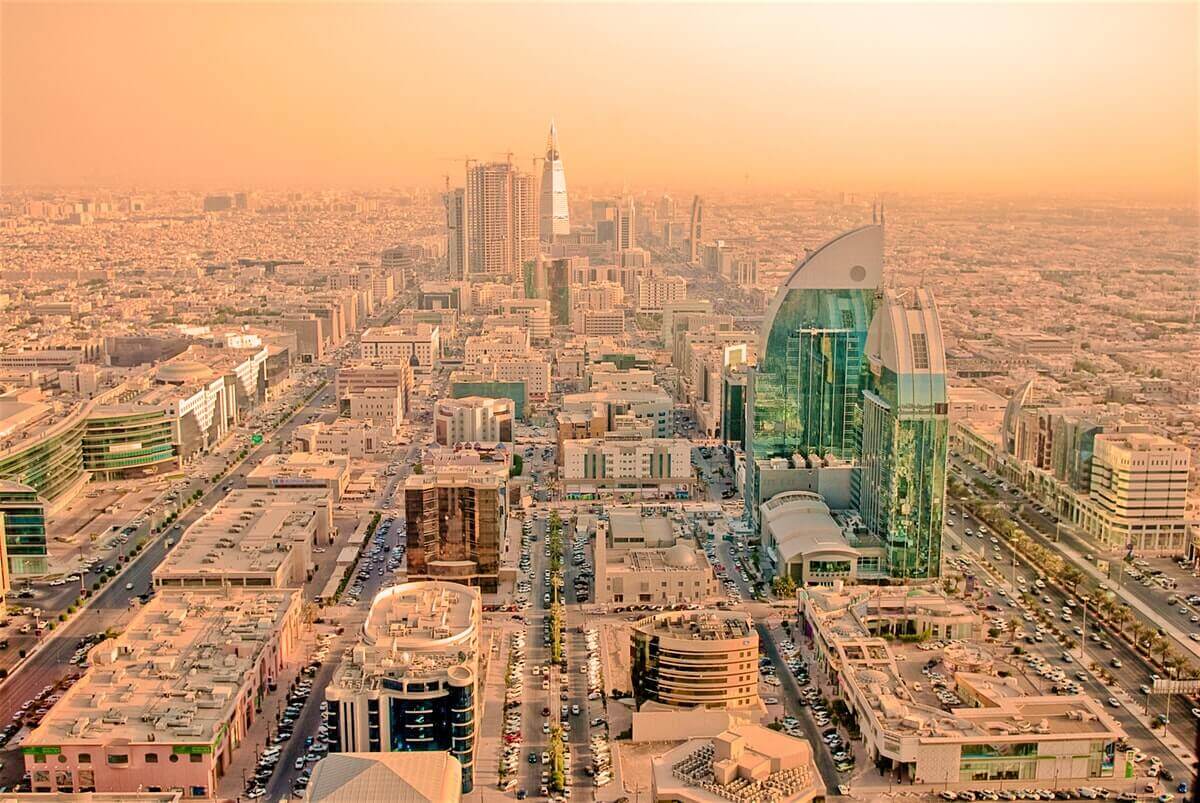
Debilitating hostility between Saudi Arabia and Iran is about lots of things, not least who will have the uppe.....

Saudi Arabia, in an indication that it is serious about shaving off the sharp edges of its Sunni Muslim ultra-.....

The United States has been and remains the staunchest supporter of Israel, and its unqualified support will ca.....

Prominent US constitutional lawyer and scholar Alan M. Dershowitz raised eyebrows when he described Qatar as &.....

I was in Israel when Trump made his announcement recognizing Jerusalem as Israel’s capital. In.....
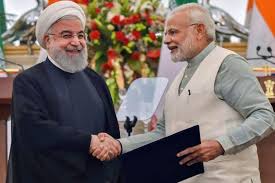
Iran is back in the news and for all the wrong reasons. It has been the unnecessary third wheel in I.....
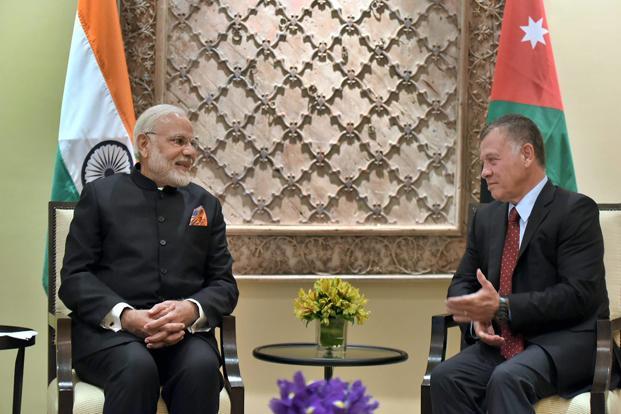
During the close to a century of its existence, the Hashemite Kingdom of Jordan has been, as former President .....

The Student and Faculty Committee (SFC) of the Centre for West Asian Studies, School of International Studies,.....
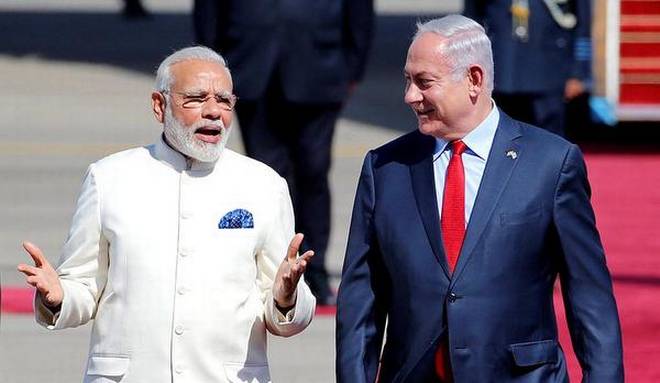
In the closely scrutinised India-Israel relationship, there is little in the public domain that remains unknow.....

You know what, it will go to the dustbin’ my articulate friend was blunt, brutal but hone.....
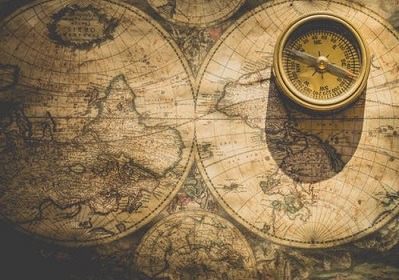
Balfour Declaration, A Century Later If one were to make a list of the most influential texts in .....



Election Schedule, July 2018 Country Election Forthcoming Ele.....

Kurdish Referendum, September 2017 Note: On 25 September 2017, the .....

18th Turkish Parliamentary Elections, October 1991[*] Political Parties Perc.....


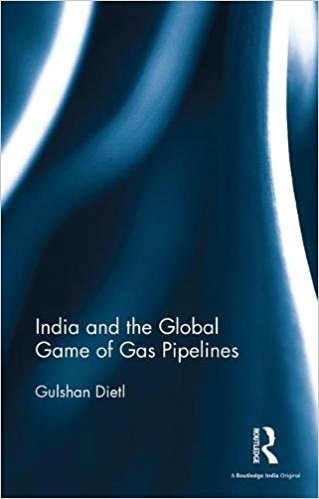
Gulshan Dietl, India and the Global Game of Gas Pipelines, (New York and London, Routledge, 2017), P.....

Book review of Squaring the circle: Mahatma Gandhi and the Jewish Homeland. By Professor P. R. Kumaraswam.....

SQUARING THE CIRCLE: MAHATMA GANDHI AND THE JEWISH NATIONAL HOME Author: P R Kumaraswamy Knowledge World.....

B orn in Poland on 2 August 1923, Szymon Persk who later Hebraised his name as Shimon Peres was the leader of the pr.....
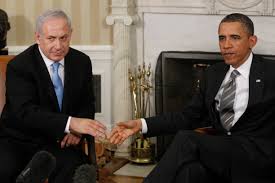
I. George W. Bush and Israel II. From the Inauguration to 9/11 III. From 9/11 to June 2002 .....
